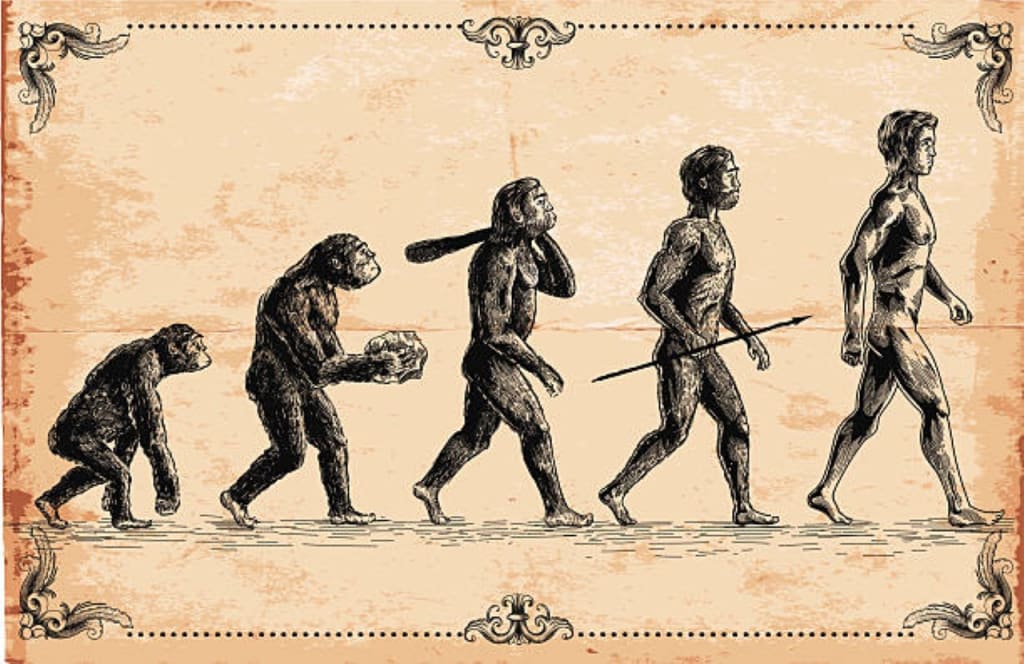A Journey Through Human History: From Hominini to the Modern World
Reflecting on the Extraordinary Evolution of Humanity

Introduction: The Unfathomable Journey
The world we live in today seems normal and ordinary, filled with modern luxuries and comforts that we often take for granted. However, it's essential to recognize that the present is an exceptional moment in human history. For the vast majority of our existence, life was vastly different, and our journey as a species has been nothing short of extraordinary.
Chapter 1: The Origins of Humanity
Our story begins approximately 6 million years ago when the tribe of hominini split, marking the end of our relationship with the apes. From there, 2.8 million years ago, the genus Homo emerged, giving birth to the first humans. Contrary to popular belief, Homo sapiens sapiens, the modern humans, are not the only human species to have existed. At one point, there were at least six other human species living alongside us, each with comparable intelligence and abilities. This diversity must have been both intriguing and daunting, akin to living with aliens.
Chapter 2: The Emergence of Early Humans
Around 200,000 years ago, Homo sapiens sapiens emerged, and interactions with other human species, such as the Neanderthals, led to some genetic mixing. However, the fate of our human cousins remains a mystery. Did they disappear due to resource competition or through a series of minor genocides? Regardless, we are the sole surviving human species today.
Chapter 3: The Significance of Fire and Language
Around 2.8 million years ago, early humans used tools, but progress remained slow until they learned to control fire. This discovery had transformative effects as fire allowed cooking, making food more nutritious and contributing to the development of our brain. Moreover, fire provided light and warmth, elongating days and easing the harshness of winters. It served as a tool for hunting and protection, marking a crucial turning point in our evolution.
Language played an equally pivotal role, enabling communication and cooperation among early humans. With proto-language, less complex than our modern languages, they formed small hunter-gatherer societies that had cultures of their own.
Chapter 4: The Birth of Modern Humans
Around 50,000 years ago, there was an explosion of innovation. Humans developed more sophisticated tools and weapons, and culture became increasingly complex. The advent of a multi-purpose brain and advanced language allowed for effective communication, closer cooperation, and the ability to pass on knowledge from one generation to another.
Chapter 5: The Agricultural Revolution and Civilization
Approximately 12,000 years ago, humans independently developed agriculture in different regions, leading to a seismic shift in lifestyle. Farming provided a reliable food source, enabling individuals to specialize in various fields. With specialization came the rise of civilization, with people living together in communities that necessitated organization and cooperation.
Chapter 6: The Ever-Expanding Horizons of Knowledge
Over the following millennia, human progress remained relatively steady until about 500 years ago, when the Scientific Revolution changed everything. Mathematics, physics, astronomy, biology, and chemistry reshaped our understanding of the world. The Industrial Revolution further accelerated progress, laying the foundation for the modern world we know today.
Chapter 7: A Glimpse of the Present and the Future
With the invention of the computer, the evolution of the Internet, and our exponential increase in knowledge, we have reached unparalleled heights of prosperity and technology. As we look back at our history, we must acknowledge the remarkable abilities of our ancestors and the tremendous transformation they have witnessed.
Conclusion: Gratitude and Perspective
Living in the 21st century, we enjoy unprecedented levels of comfort and convenience. However, understanding our past and the hardships faced by our ancestors can help us gain perspective and foster a sense of gratitude. The journey of humanity has been a rollercoaster of progress, and as we shape the future, we must tread carefully and mindfully.
As we continue our exploration of human history, let us remember the importance of cooperation, communication, and innovation. By appreciating our roots, we can better appreciate the marvels of the present and strive for a brighter future for generations to come.
Note: The above content is structured in a chronological and informative manner, aiming to engage readers with a comprehensive overview of human history. The paragraphs are divided into distinct chapters, each focusing on key milestones in our evolution. The language used is easy to read and follow, allowing readers to connect with the narrative.





Comments
There are no comments for this story
Be the first to respond and start the conversation.